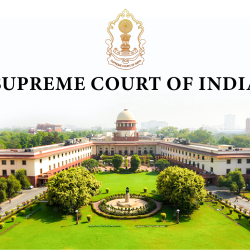India’s ‘Look East Policy’ concern for Burmese
India the largest democracy in the world has always been maintaining good relationship with its neighbors like Bhutan, Nepal, Pakistan, Bangladesh, Sri Lanka and Burma. The efforts are continue for a peaceful co-existence with all its neighboring countries. At a time when this country pleads for democracy in other countries and has welcomed the democratically elected governments in Nepal, Pakistan and Bangladesh, its attitude towards Burma (Now Myanmar) seems a bit different. This shift in its policy took place during the year 1990, when India launched its “Look East Policy” and began to support the military junta in Burma. Since India has embarked upon building a broad based relationship with the military junta including cooperation on defense, trade and investment, energy and natural resources, a series of agreements and Memorandum of Understanding (MoU) have already been signed, such as the construction of Sittwe port, the multi model Kaladan project and Energy and Petroleum Cooperation. India’s closer relationship with Burma’s junta and its cold approach to the people’s movement for human rights and democracy in Burma has raised concern amongst Indian civil society as they question whether India has abandoned the principle of humanist and idealist policy guided by Mahatma Gandhi and Jawahar Lal Nehru. Burma Centre Delhi, an organization formed by members from India and Burma civil society groups is out to work for restoration of peace justice, democracy and human rights in Burma. It still believes India is an important neighbor that can influence Burma in bringing about a democratic transition acceptable to the people of Burma. It may be recalled here that Burma was under British colonial rule for more than one hundred years. Since its independence on January 4, 1948 this country practiced a democratic parliamentary system under the leadership of the premier U Nu. This system continued for fourteen years only, when Burmese army staged a military coup overthrowing the democratically elected government and imposing oppressive military rule. The coup instigators, namely, the Revolutionary Council led by General Ne Win, abolished the constitution and suspended all democratic rights of the people. All legislative, executive and judicial powers were vested in the hands of Gen Ne Win. The military used guns to control the country according to their wishes, keeping a tight lid on the political activities of those who love democracy in the country. The military regime transformed itself into a ruling political party in the year 1974, which was named the Burmese Socialist Program me Party (BSPP). The BSPP ruled over the country for fourteen years until 1988, with single party dominated political system with the ideology ‘the Burmese way to socialism’. During these years the country became one of the poorest countries in the world. Therefore, in 1987 Burma was listed as a least developed country (LDC) by the United Nations. Due to deterioration of Burma’s economic situation and oppressive one political party rule on August 8, 1988, which is known as 8-8-88, the people (workers, monks, peasants, teachers, government servants and youth) of Burma led by the university students at Rangoon rose up as one to call upon the military rulers to abolish the ill-reputed one party system, demanding democracy and human rights in the country. The military responded with bullets against the peaceful demonstrators and killed more than 3,000 demonstrators throughout the country. After 8888 incidents, Gen Saw Maung took over the country on 18th September 1988 and renamed the ruling regime the State Law and Order Restoration Council (SLORC). Therefore in 1989 under the SLORC Burma was renamed as Myanmar to divert international attention and criticism. A multi-party general election was held in May 1990, in which the National League for Democracy (NLD) won a landslide victory. However, the military ignored the election results and did not hand over the people’s mandate to the winning party, instead imposing authoritarian rule and violently cracking down on the people’s pro-democracy movement. In spite of the repressive military rule for about fifty years the people aspiration for peace, dignity and democracy continues till now and Burmese people hope that India can play a better role to bring democracy back in their country.
Other Contents by Author
Mahatma Gandhi National Rural Employment Guarantee Act (MGNREGA) is a revolutionary Act of the Government of India with tremendous potentiality of eradicating unemployment situation in the country. On February 2, 2006 first phase of NREGA implementation was started in 200 districts of the country in which seven districts of Assam were also incorporated. In the year 2007, the second phase of NREGA had started where five districts of Assam were also included. The third phase started on April 1,2008 where remaining 14 districts of Assam came under the purview of the Act. Hence, at present all the districts of Assam are implementing the provisions of MGNREGA.
On March 31, 2012 Assam completed...
Citizens’ First , an NGO has demanded the land vacated by shifting of Guwahati Central Jail from Fancy Bazaar area of the city to be converted into a freedom fighters’ park with green coverage and installation of Martyrs’ column.
In a memorandum submitted to the Assam Chief Minister, Tarun Gogoi recently, the NGO President Jagannath Chakraborty, Working President Ajoy Dutta, Ex-MLA and General Secretary Jagannath Das have urged an important issue relating to utilization and preservation of 64 Bighas of land vacated by shifting of Central jail from the city to outside.
The memorandum pointed out that the Fancy Bazaar and surrounding areas in the midst of the city...
One out of every 1000 children born, is born deaf. An undiagnosed deaf child at 3 years of age will know about 25 words, compared to over 1000 words for a hearing child of the same age. Eighty one percent of the parents of a deaf child never learn to communicate with their child. About 530 schools in India educate around 50.000 children with hearing impairment in the age group of 5 to 18 years. The other children do not receive any formal education. Ninety percent of the deaf children grow up in hearing families with little or no experience of deafness.
Deaf children face a complete disconnect from the world around them. A feeling of isolation and desperate loneliness develops within the...
Established in 1901 Digboi oil refinery is not only India’s, but Asia’s first oil refinery, which is now losing its glory due to present marketing policy and mismanagement. According to the workers of the refinery the journey of oil industry in India began from Digboi in Assam. After long sixty years, Indian Oil Corporation Ltd (IOCL) came into existence in 1962, with its first refinery at Guwahati. Under the IOCL and even prior to that there was no effort by the management to increase the production capacity of this refinery. Whereas, for the survival of refinery its capacity should have been increased to 9 million MT, it came down to 0.65 million tons. In the meantime, the...
India has a long stretch of international borders with Bangladesh surrounding throughout north, east and west. On the north eastern part, Indo-Bangla borders in Assam, barbed wire fencing work is continue for a longtime. Despite all efforts infiltration of foreign nationals from that country is continue. In between the two countries a vast area, called ‘No man’s land’ is lying where a large number of Indian families are living and there is nobody to look after their convenience and welfare.
They are Indians, but they are not independent like other Indians. According to official reports, beyond the wire fencing on the borders 448 families are land locked. Out of them...
Industrial development in India has been dependent on political influence and leadership, ever since Independence. As a matter of fact no fair policy could be framed for equal development of all the regions of the country simultaneously. That is why some of the regions remained completely neglected, while others developed beyond limitations, resulting in heavy congestions. Besides, the metropolis and a few big industrial centers of the country, where opportunities are ample for growth, there is vast disparity in establishment of industries in various regions. The industrialization of a particular area depends on the degree of political influence in its favor. Unfortunately, the...
Mismanagement, fund crunch and irregular supply of raw materials has put the Cachar paper mill on brink of closure. The employees and casual laborers of the mill are put under tight corner and the management has maintained complete silence over the whole affairs. Production of the paper mill has been confined to the tune of daily material collection from various sources. The supply of disproportionate raw materials could not ease the tension of high officials. Supply of bamboo, coal, lime etc, are urgently required to run the factory.
The problems in supply of bamboo from North Cachar Hills to this mill began about three years back due to legal complexities, unwillingness of...
In spite of tall talks of Assam Chief Minister, Tarun Gogoi and the minister of health and family welfare, Dr Himanta Biswa Sarma, about record progress in health sector in respect of establishment of health sub centers, appointment of doctors etc; the picture in this sector is far behind the truth. Construction of hospital buildings, payment of salaries and wages, organizing public meetings about awareness and precautions against diseases, can in no case be treated as the progress in health sector.
It may be mentioned here that one health sub centre is required for every five thousand population in both rural and urban areas. Against every five thousand population, doctors, nurses and...
Ubati Riang, a sixty year old lady, who played a major role in bringing Barak valley militants to negotiation table with the government, is disappointed on the role of the state government for its dillydally tactics in solution of the major issues relating to the rehabilitation of those, who came forward for the peace talks. According to her recent violent incidents in the Hailakandi district of southern Assam, were the outcome of state’s inaction as regards the solution of the issues. The Riang youths are losing heart and peace is vanishing, she was reported to have said. She said that the Riangs did not ask any thing that was not possible for the government to agree. Their...
With growing intolerance and unrest minds among the youths of the country, demand for creating smaller states is growing day by day. Recently Uttar Pradesh Assembly has adopted a resolution to divide the state into four parts namely, Purvanchal, Avadh Pradesh, Paschim Pradesh and Bundelkhand. It is realized that this situation has attained importance because of the regional disparity in growth, discrimination in all rights and privileges and sense of insecurity at the individual and community level. Most of the Indian states are politically insurmountable state of affairs to all fronts especially in respect of political and economic fields. There are imbalances and unmanageable equal...









Comments
Pages
Add new comment